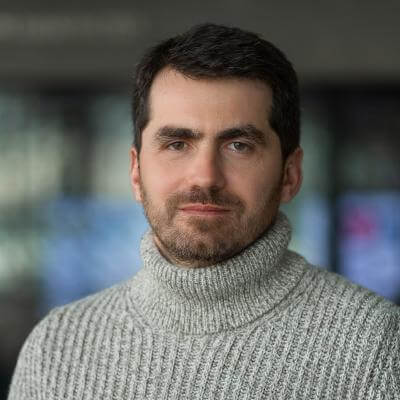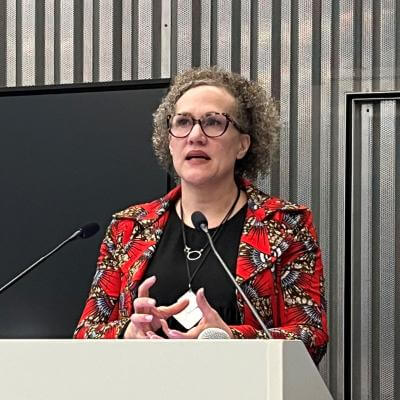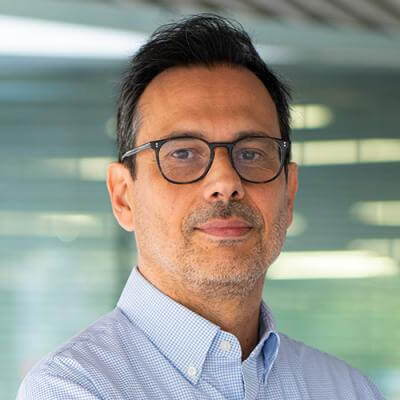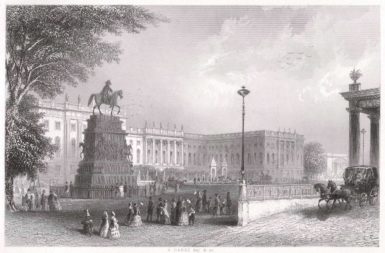Reimagining Education in the Knowledge Society
The unprecedented growth of information and technology, globalisation, and changing social systems have not only given rise to but also propelled the emergence of a knowledge society. This social transformation implies that there is an increased production of and access to knowledge across institutional, geographical and systemic boundaries. However, knowledge society should not be characterised as a mere production and transfer of information; instead, it should be acknowledged as the meaningful and effective transformation and translation of information into knowledge that can enrich human lives. As we now find ourselves immersed in a rapidly evolving knowledge society, education takes on different purposes and confronts new challenges.
In the knowledge society, there is an abundance of information readily available through diverse channels and platforms. It therefore becomes crucial for individuals to learn how to identify and locate the information they need, while also being able to critically analyse and evaluate its quality. Only through these competencies can they transform information into knowledge beneficial to them. This highlights the importance of incorporating information literacy and digital skills into education, in addition to proficiency in reading, writing and arithmetic. Moreover, learning should not be limited to the acquisition of tools and techniques; it should also focus on the purpose for learning, empowering students to question and assess its relevance and usefulness and to synthesise information from a myriad of sources.
Furthermore, the accelerated production and widespread dissemination of knowledge lead to rapid changes in social, political, economic and cultural norms and institutions.

This relentless pace of changes necessitates individuals to adapt and remain open to continuous learning, which will help them cultivate a mindset of flexibility. Indeed, the concept of lifelong learning and education, advocated by the international community for decades (as exemplified by UNESCO’s 1972 report Learning to Be: The World of Education Today and Tomorrow), emphasises that education should not be limited to formal schooling.
While the wealth of information and new technologies could be perceived as an opportunity for social development, their potential for generating positive change for all depends on the integration of all members into society. Education thus should equip individuals with empathy, compassion and an appreciation for cultural diversity. In addition, to address the prevailing societal challenges, education should underscore the principles of democracy and social justice and instil a sense of civic responsibility.
Unfortunately, there are several challenges that hinder the realisation of the evolving purposes of education. Neoliberalism, deeply embedded both ideologically and discursively within the knowledge economy, has led to the commodification of knowledge and education. This has resulted in learners being perceived and treated as potential knowledge workers rather than individuals with unique needs and aspirations. To address this challenge, we should move away from the notion of education only as a means to achieve economic imperatives and instead place greater emphasis on personal well-being and holistic growth.

Furthermore, a knowledge society should not be solely based on the knowledge economy, which often favours particular forms of knowledge (e.g., scientific and technological knowledge) and benefits certain socio-economic groups. UNESCO’s report Towards Knowledge Societies (2005) warns that excessive commodification of knowledge risks undervaluing local and indigenous knowledge, potentially leading to their eventual disappearance, and also constrains meaningful and relevant knowledge sharing for all.
Another formidable challenge is the unequal access to and utilisation of information and communication technologies. The disparity known as the digital divide is influenced by factors such as age, gender, education, socio-economic status or geographic location. For example, UNICEF and ITU’s report How Many Children and Youth Have Internet Access at Home (2020) presents that while high-income countries have 87% internet coverage, low-income countries only have 6%. However, the more disconcerting issue is the knowledge divide, which is further exacerbated by the digital divide. Not everyone enjoys equal access or possesses the skills and capacity to seek, produce, evaluate and apply knowledge. The gap is most noticeable between the global North and the global South, but it also exists within countries and societies. Simply providing access to information and communication technologies will not be sufficient to address the knowledge divide; it also requires education that prepares individuals for the knowledge society.
The purposes and challenges of education in a knowledge society discussed here are not new. Many international organisations such as UNESCO, OECD and the World Bank as well as policymakers, scholars and practitioners have explored, debated and written about the topic. Despite the efforts, it is evident that we have unfortunately yet to make much progress. There are indeed many challenges related to funding, infrastructure, governance and institutions that were not even discussed here. However, what should come first is reimagining education beyond traditional and neoliberal models of education. Only then can education be a catalyst for building a genuine knowledge society for all.
TABLE: Roles and Missions of the University
| Regime | Role and missions |
|---|---|
| Medieval University | Serving God and Church; Serving Science |
| Westphalian University | Serving Science; Serving State and Nation |
| Postmodern University | Serving Society and Humanity; Serving the Market |
Source: Marie-Laure Salles-Djelic, “Scholars in the Audit Society: Understanding our Contemporary Iron Cage”, in Scholars in Action: Past – Present – Future, ed. Lars Engwall (Uppsala Universitet, 2012), p. 99.
DEFINITIONS: Selection of Terms Related to Higher Education
A university (from Latin universitas “a whole”) is an institution of higher (or tertiary) education and research which awards academic degrees in several academic disciplines. Universities typically offer both undergraduate and postgraduate programmes. The word university is derived from the Latin phrase universitas magistrorum et scholarium, which roughly means “community of teachers and scholars”. (Wikipedia)
Higher education, also called post-secondary education, third-level or tertiary education, is an optional final stage of formal learning that occurs after completion of secondary education. This consists of universities, colleges and polytechnics that offer formal degrees beyond high school or secondary school education. The right of access to higher education is mentioned in a number of international human rights instruments. The UN International Covenant on Economic, Social and Cultural Rights of 1966 declares, in Article 13, that “higher education shall be made equally accessible to all, on the basis of capacity, by every appropriate means, and in particular by the progressive introduction of free education”. (Wikipedia)
A college (Latin collegium) is an educational institution or a constituent part of one. In most of the world, a college may be a high school or secondary school, a college of further education, a training institution that awards trade qualifications, a higher-education provider that does not have university status (often without its own degree-awarding powers), or a constituent part of a university. The word is generally also used as a synonym for a university in the US. (Wikipedia)
Apprenticeship is a system for training a new generation of practitioners of a trade or profession with on-the-job training and often some accompanying study (classroom work and reading). Apprenticeships can also enable practitioners to gain a license to practice in a regulated occupation. Most of their training is done while working for an employer who helps the apprentices learn their trade or profession, in exchange for their continued labor for an agreed period after they have achieved measurable competencies. (Wikipedia)
An information society is a society where the usage, creation, distribution, manipulation and integration of information is a significant activity. Its main drivers are information and communication technologies, which have resulted in rapid growth of a variety of forms of information. Proponents of this theory posit that these technologies are impacting most important forms of social organisation, including education, economy, health, government, warfare, and levels of democracy. (Wikipedia)
A knowledge society generates, shares and makes available to all members of the society knowledge that may be used to improve the human condition. A knowledge society differs from an information society in that the former serves to transform information into resources that allow society to take effective action, while the latter only creates and disseminates the raw data. The capacity to gather and analyse information has existed throughout human history. However, the idea of the present-day knowledge society is based on the vast increase in data creation and information dissemination that results from the innovation of information technologies. (Wikipedia)
Wikipedia
TABLE: The Top 12 Host Countries of International Students in 2022 (by number of students)
| USA | 948'519 |
| UK | 633'910 |
| Canada | 552'580 |
| France | 364'756 |
| Australia | 363'859 |
| Russia | 351'127 |
| Germany | 324'729 |
| China | 296'611 |
| Japan | 201'877 |
| Italy | 125'470 |
| Netherlands | 115'068 |
| Argentina | 108'180 |
Source: Project Atlas.
GRAPH: The Twelve Countries with the Most Universities in 2023
BOX: The Humboldtian Model of Higher Education
The Humboldtian model of higher education or Humboldt’s Ideal is a concept of academic education that emerged in the early 19th century and whose core idea is a holistic combination of research and studies. It integrates the arts and sciences with research to achieve both comprehensive general learning and cultural knowledge. Several elements of the Humboldtian model heavily influenced and subsequently became part of the concept of the research university. The Humboldtian model goes back to Wilhelm von Humboldt, a Prussian philosopher, government functionary and diplomat who, in the time of the Prussian reforms, relied on a growing, educated middle class to promote his claims about general education.
As a privy councillor in the Interior Ministry, he reformed the Prussian education system according to humanist principles. He founded the University of Berlin, appointing distinguished scholars to both teach and conduct research there. Several scholars have labeled him the most influential education official in German history. Humboldt sought to create an educational system based on unbiased knowledge and analysis, combining research and teaching while allowing students to choose their own course of study. The University of Berlin was later named the Humboldt University of Berlin, after him and his brother, the naturalist Alexander von Humboldt. His educational model went beyond vocational training in Germany.
In a letter to the Prussian king, he wrote: “There are undeniably certain kinds of knowledge that must be of a general nature and, more importantly, a certain cultivation of the mind and character that nobody can afford to be without. People obviously cannot be good craftworkers, merchants, soldiers or businessmen unless, regardless of their occupation, they are good, upstanding and – according to their condition – well-informed human beings and citizens. If this basis is laid through schooling, vocational skills are easily acquired later on, and a person is always free to move from one occupation to another, as so often happens in life.”
The philosopher and former State Minister for Culture of the Federal Republic of Germany, Julian Nida-Rümelin, has criticised discrepancies between Humboldt’s ideals and the contemporary European education policy, which narrowly understands education as preparation for the labor market, arguing instead that one needs to decide between McKinsey’s and Humboldt’s ideals.
Wikipedia
VIDEO: What Are Assets, and Why Do They Matter?
Additional information: https://www.lancaster.ac.uk/universities-and-unicorns/.
Source: Science Animated, https://sciani.com.
VIDEO: What Are the Key Tensions in Educational Technology?
Additional information: https://www.lancaster.ac.uk/universities-and-unicorns/.
Source: Science Animated, https://sciani.com/.
VIDEO: The UNESCO Chair in Comparative Education Policy, with Chanwoong Baek
Research Office, Geneva Graduate Institute.
VIDEO: University in Question, with Marie-Laure Salles
Research Office, Geneva Graduate Institute















